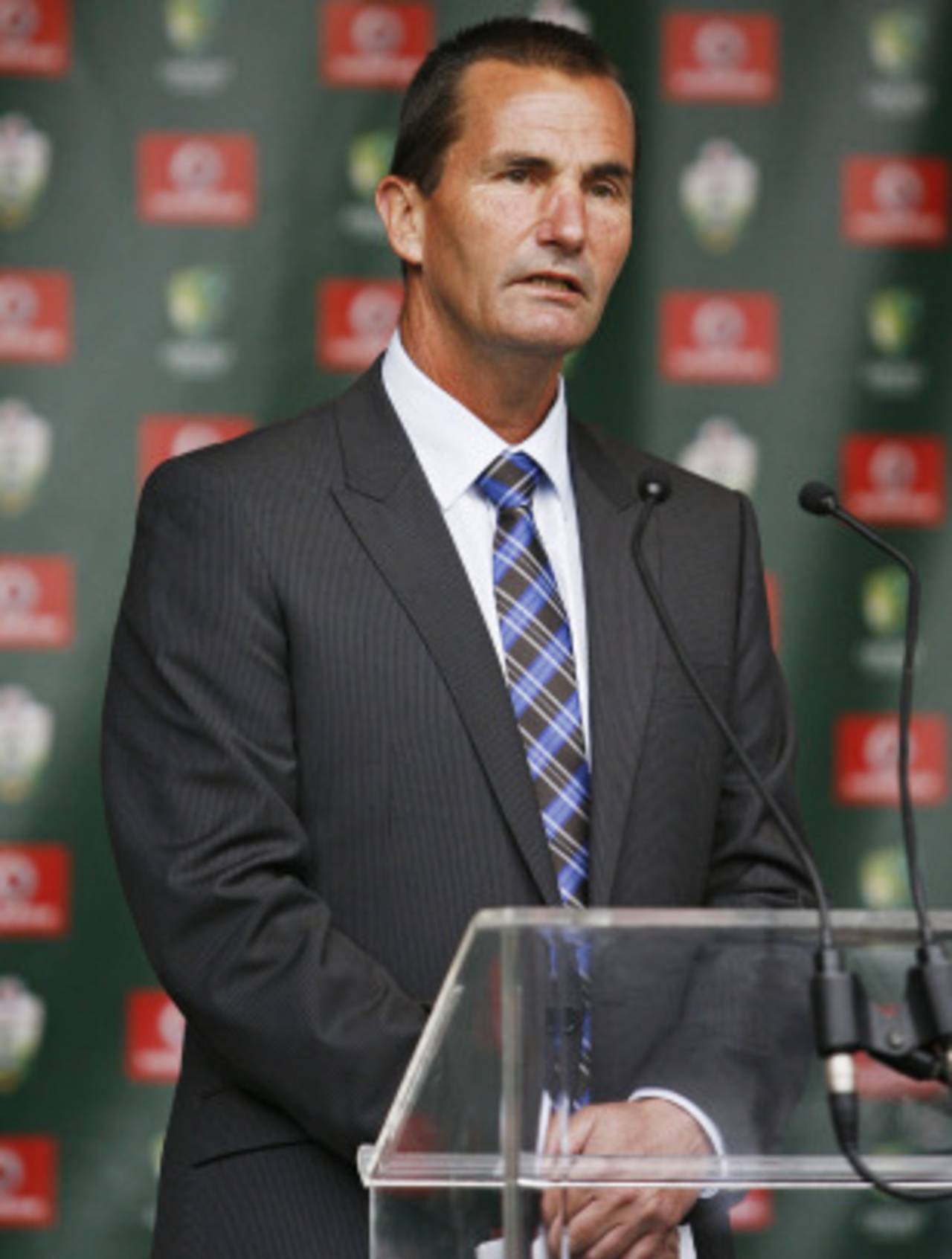In a hilly suburb of Adelaide, on a morning so still that even the crows must have been sleeping in, Andrew Hilditch decided to catch a bus to the solicitors’ office where he worked. This was years ago, not long after he had stopped playing cricket. By the side of the road he stood and stood. The stillness in the air gave way. It started to rain. He stayed standing. Some chunks of hail swooped down. Watching them bounce along the footpath, he stayed standing. A taxi driver slowed in front of him, trying to get his attention. He shrugged and stayed standing. Reluctantly, he hoisted his old briefcase – slightly worn, but he cherished it, a gift from his father-in-law – and held it over his head. And stayed standing.
Instantly the briefcase’s battered condition revealed itself: it was full of holes. Water gushed down his nose and cheeks from what felt like a dozen leather pinpricks. Top-secret court documents in that briefcase shrivelled, then clagged together, an unreadable mash. A kindly woman, bespectacled, she was wearing a purple headscarf, tugged at the sodden left elbow of his suit sleeve. “Son,” she said, “you do know, don’t you, that the bus drivers are on strike today?” Andrew stayed standing.
It is not a story you hear him tell, not now that he is the chairman of selectors. Yet somehow it sums him – not that we feel like we know him, not really – up. Once he has hit upon a strategy, he sticks to it. If subtle signs emerge that the strategy is not working, he sticks to it. When it becomes apparent that the strategy is doomed and was a wrong-headed strategy all along, he sticks to it.
He succeeded Trevor Hohns in 2006. The first squad he was in charge of picking was for that summer’s opening Ashes Test. It was a squad of 13 men, five of them fast bowlers. Some commentators thought this a timid, fretful beginning. Could he not simply have named the three fast bowlers who would actually take the field?
He has now been chairman of selectors for 43 Tests. In that time there have been 57 ins and outs from the Australian team. Of these, 39 were forced by players retiring, injuring themselves or, in the one-off case of Michael Clarke, going on compassionate leave. That means that 18 times in 43 Tests, a hard decision has been taken and a player dropped for reasons to do with performance or indiscipline. That’s once every 2.4 matches.
It is not a lot. It is the chairman of selectors’ way.
No player was dropped, for reasons other than retirement or injury, until his 15th month in the job. Australia were winning back then. When they are losing he feels even less inclined to drop people. Since that most clarion-like of alarm bells – the 2009 Ashes defeat – Australia have played a dozen Tests, with only three unforced ins and outs. You might have heard a few potential ins mentioned lately: Khawaja, Ferguson, Doherty, Starc. Here are a few possible outs: North, Hussey, Hauritz, Johnson. No one who has studied Australia’s chairman of selectors, nor anyone who has ever honked a metaphorical taxi horn in his direction and tried to get his attention, expects any of these mooted comings or goings to eventuate.
But I digress.
This morning, beside Sydney Harbour, in quite heavy spring rain, Andrew sat down to announce a team for one game of cricket and read out 17 names, the same number of players Australia traditionally takes on a tour of four months and 40 games. And now I can’t tell for sure which paragraph in this story reads more like make-believe: this one, or the one that actually is make-believe.
Christian Ryan is a writer based in Melbourne. He is the author of Golden Boy: Kim Hughes and the Bad Old Days of Australian Cricket and, most recently Australia: Story of a Cricket Country
